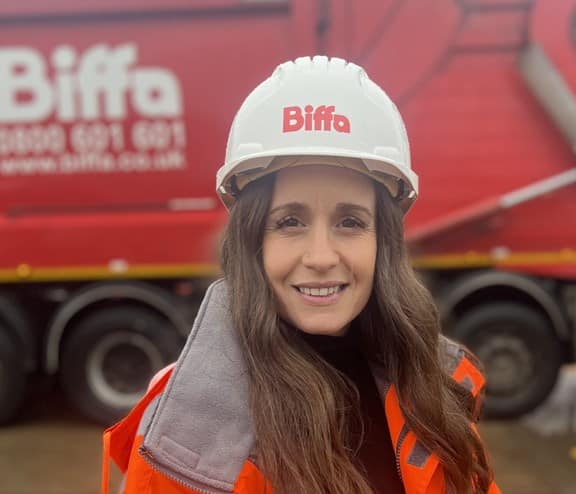
Opinion: Why recycling alone is not the net zero magic bullet
Recycling is a fundamental part of the UK’s ambition to reach net zero by 2050.
Residents across Wales are already achieving incredible results, with the country’s household recycling rate hitting 66% in 2023 - the third best in the world. Seventeen of Wales’ 22 local authorities exceeded 2023’s target of 64%, with 12 reporting an improvement on the previous year.
Now it’s the turn of businesses from Caernarfon to Cardiff and Aberystwyth to Wrexham to flex their recycling muscles.
June 2024 update: Wales was named second in the world for recycling in a new study published by Eunomia Research and Consulting and Reloop. Northern Ireland was 9th, England 11th and Scotland 15th among the 48 countries included in the comparison.
What are the new rules?
From April 6, 2024, new Welsh Government rules come into force on the collection and disposal of business waste. All businesses, charities and public sector organisations will need to separate food waste, paper/card, glass, metal/plastics/cartons, unsold textiles and small electricals into six separate containers.
The new regulations will help reduce the amount of recycling lost to contamination or general waste. For every item that’s not recycled, a new one must be made, but manufacturing from scratch means more carbon emissions and the loss of more natural resources.
Why does recycling matter?
Around 90% of biodiversity loss comes from resource extraction and 45% of all emissions are due to the products we buy – but far too many of them, and the packaging they come in, are not designed with sustainability in mind.
Indeed, across the border, recycling rates in England have slipped, making the case for Simpler Recycling – its household, business and non-domestic property version of Workplace Recycling – even more compelling.
By taking part in Workplace Recycling, businesses are supporting Wales’ target of 70% recycling by 2025, marking a major contribution to the UK’s goal of becoming net zero by 2050.
But with global temperatures still rising, there will be increased pressure on governments at COP29 this year to reach a more ambitious international consensus on reducing emissions and stopping the decline of nature.
Making more packaging from easy-to-recycle materials such as plastic, glass, metal and cardboard will help improve recycling rates and, from 2025, UK packaging manufacturers will be required to do so under new Extended Producer Responsibility rules.
Businesses, the government and waste management organisations also need to work together to find more sustainable solutions for hard-to-recycle waste streams, such as textiles, supercharging investment in innovative new technologies to unlock the circular economy in these areas.
What else can we all do?
But recycling alone is not the net zero magic bullet.
Reducing waste in the first place, especially food, will play a truly pivotal role in turning the net zero dial.
Around 9.5 million tonnes of food end up in the bin in the UK each year (not including from farms), and for every tonne that goes to landfill, approximately 4.2 tonnes of greenhouse gases are produced.
More than six million tonnes of this food is perfectly edible. This is unacceptable when so many people are struggling to feed their families.
The food packaging paradox
While some packaging can preserve quality, particularly during transit, unnecessary packaging and ‘best before’ dates are the two key drivers of this food waste.
Pre-packaged fruit and veg can offer better value over loose produce, but people often end up buying way more than they need. Most of us will have thrown away a half-eaten bag of salad at some point because it’s gone off.
Meanwhile ‘best before’ dates have been used since the 1970s, yet tests on fresh produce proves quality continues for some time afterwards. Re-evaluating the use of these date labels could save 50,000 tonnes of food waste from UK households.
Redistributing more surplus or unsold food that’s still good enough to eat to those who need it most – through stores like Biffa’s Company Shop Group – will also play a crucial role in preventing waste and emissions. It’s also just the right thing to do.
With food that’s no longer fit for human consumption, it should, where possible, be used to feed animals first. Only as a last resort should it be sent to a treatment plant to be turned into renewable electricity and fertilizer.
Reusing packaging like cardboard boxes, envelopes and bags, while repairing products like clothes and furniture, instead of throwing them away, also means less waste and fewer emissions.
A global effort is needed
The net zero challenge is not limited to the UK.
Without a global commercial and political effort to embed reduction, reuse and recycling into the supply chain, and the infrastructure in place to support this, we will not be able to create a much-needed global circular economy, leading to missed opportunities to redistribute surplus, transform more waste materials into recyclate for manufacturing, or to support the repair and reuse of discarded materials and products.
There is positive momentum being made – with Wales leading the charge – but there’s still a long way to go. Our positive actions now will ensure a more sustainable future for everyone.